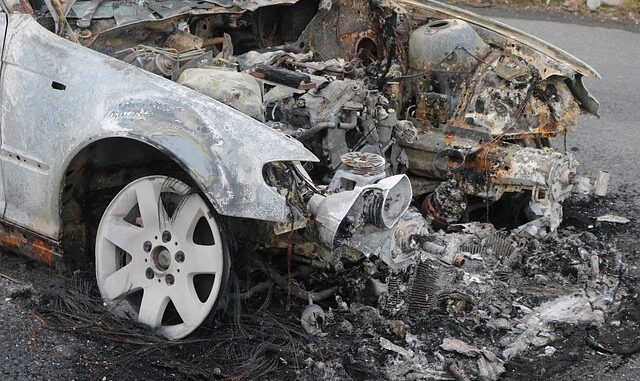
Experiencing a car accident in Ontario can be unsettling, and amidst the immediate concerns for safety and legal matters, retrieving personal belongings from the vehicle might be overlooked. This article outlines essential steps and considerations for safely and efficiently collecting your belongings after a car accident in Ontario.
Immediate Steps After an Accident
- Ensure Safety First: Immediately after a car accident, prioritize your safety and that of others involved. If possible and safe to do so, move your vehicle to a safe location to prevent further accidents or obstructions on the road.
- Assess Injuries: Check yourself and passengers for injuries. If anyone requires medical attention, call emergency services immediately. Your well-being is the top priority following an accident.
Retrieving Belongings
- Contact Law Enforcement: In Ontario, if law enforcement attends the scene of the accident, inform them that you need to retrieve personal belongings from your vehicle. They can provide guidance and ensure safety protocols are followed.
- Assistance from Tow Operators: If your vehicle is towed from the accident scene, contact the towing company promptly. They can inform you of where your vehicle has been towed and any procedures for retrieving personal belongings.
Steps to Retrieve Belongings
- Permission and Safety: Before accessing your vehicle, ensure you have permission from law enforcement, the towing company, or the property owner where your vehicle is located. Safety considerations such as traffic conditions and vehicle stability should also be assessed.
- Documenting Belongings: As you retrieve your belongings, document the items present in your vehicle. This documentation can be useful for insurance purposes and to ensure nothing is overlooked or lost during the process.
Considerations for Personal Safety
- Protective Gear: Wear appropriate clothing and footwear, especially if your vehicle is in a precarious position or the weather conditions are adverse. Safety vests and sturdy shoes can provide added protection.
- Hazards Awareness: Be mindful of potential hazards such as broken glass, sharp metal edges, or unstable vehicle parts. Proceed with caution and avoid unnecessary risks while retrieving your belongings.
Legal and Insurance Aspects
- Insurance Claims: Documenting your belongings and their condition can be crucial for insurance claims related to personal property damaged in the accident. Photographs or a detailed inventory list can support your claims process.
- Seeking Legal Advice: If you encounter difficulties in retrieving your belongings or need assistance with insurance claims, consider consulting a legal professional specializing in personal injury or accident law. They can provide guidance and advocate for your rights.
Practical Tips for Efficiency
- Organize Belongings: Keep your belongings organized and accessible in your vehicle. This can streamline the retrieval process and minimize the time spent searching through compartments or seats.
- Personal Documents: Ensure you retrieve important documents such as driver’s license, vehicle registration, insurance information, and any personal identification or financial cards.
Post-Accident Emotional Support
- Coping with Stress: A car accident can be emotionally distressing. Seek emotional support from friends, family, or professional counselors if needed. Taking care of your mental well-being is as important as physical recovery.
- Legal Rights Awareness: Understand your legal rights regarding property damage, personal injury claims, and insurance coverage. Being informed empowers you to make informed decisions and protect your interests.
Conclusion
In Ontario, retrieving belongings after a car accident involves careful coordination, safety considerations, and adherence to legal and insurance protocols. By following these steps and considerations, you can navigate the process effectively and ensure that your personal belongings are safely retrieved from the accident scene or your towed vehicle.
Remember to prioritize safety, seek assistance from law enforcement or towing operators as needed, and document your belongings for insurance purposes. These practices not only facilitate a smoother recovery process but also protect your rights and ensure you have the necessary resources to move forward following a car accident in Ontario.
In summary, while retrieving belongings after a car accident may seem daunting, being prepared, organized, and aware of your rights enables you to handle the situation with confidence and efficiency. By taking proactive steps, Ontario drivers can effectively manage the aftermath of accidents and focus on their recovery and well-being.
